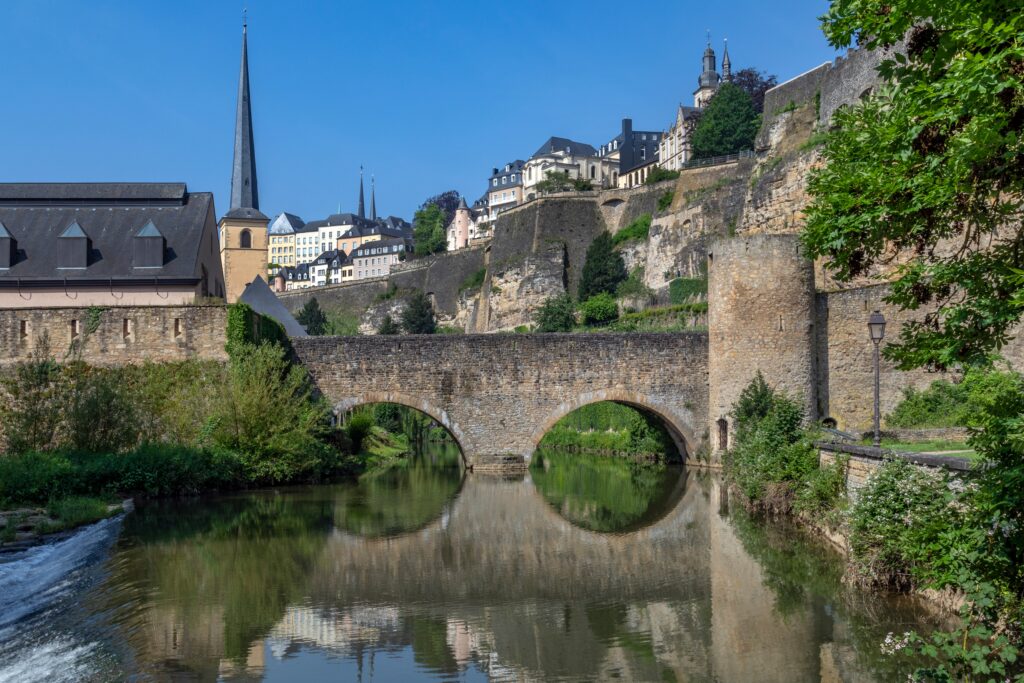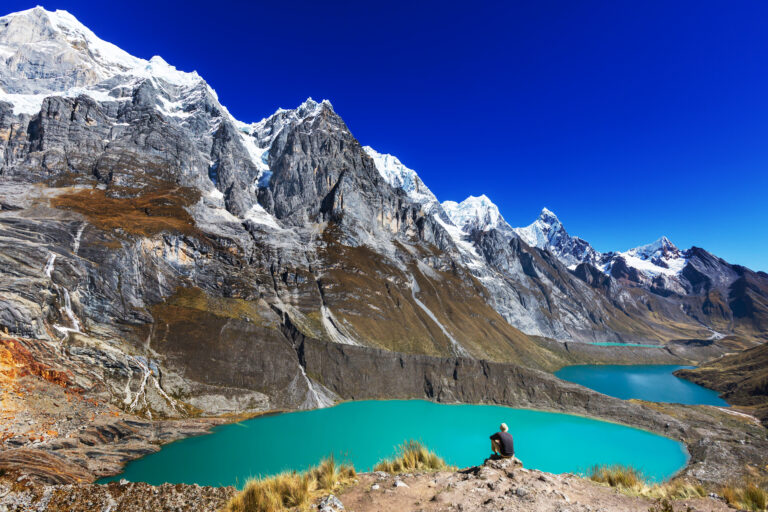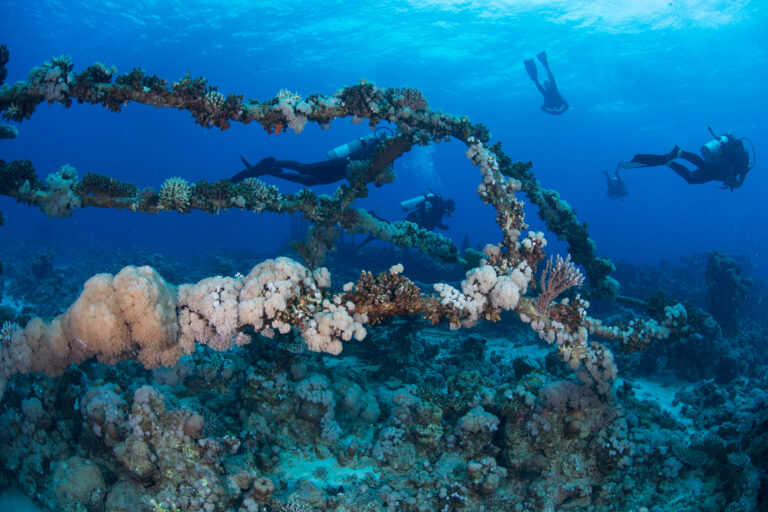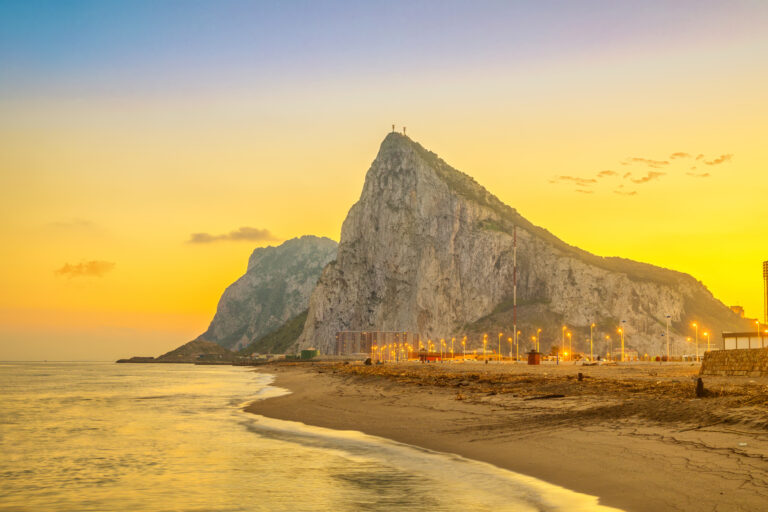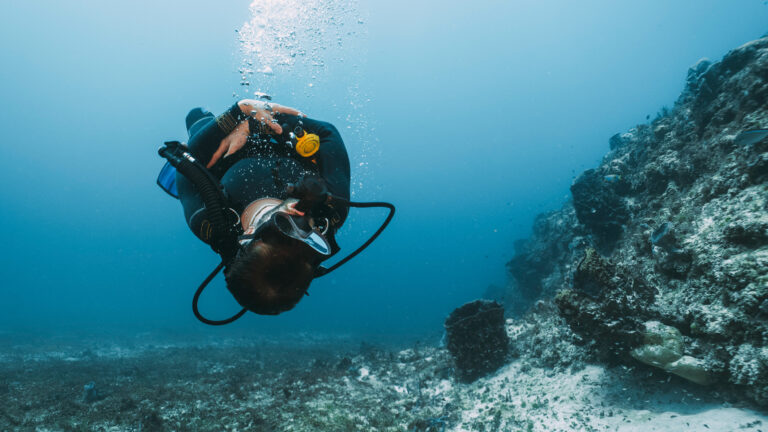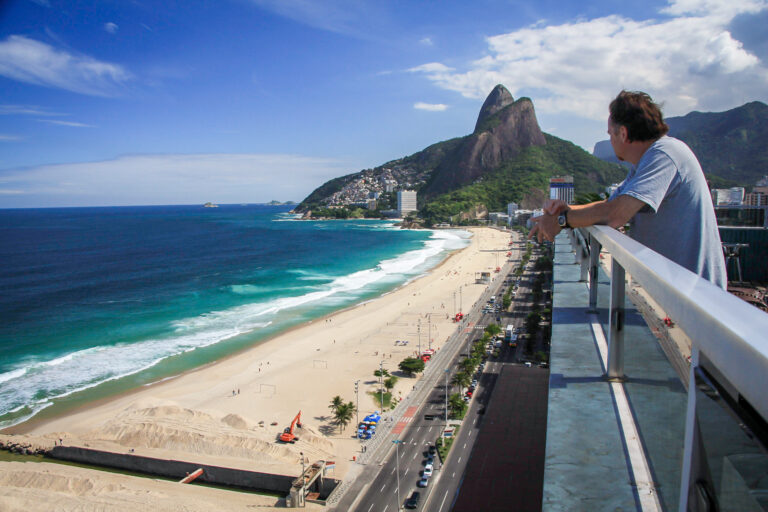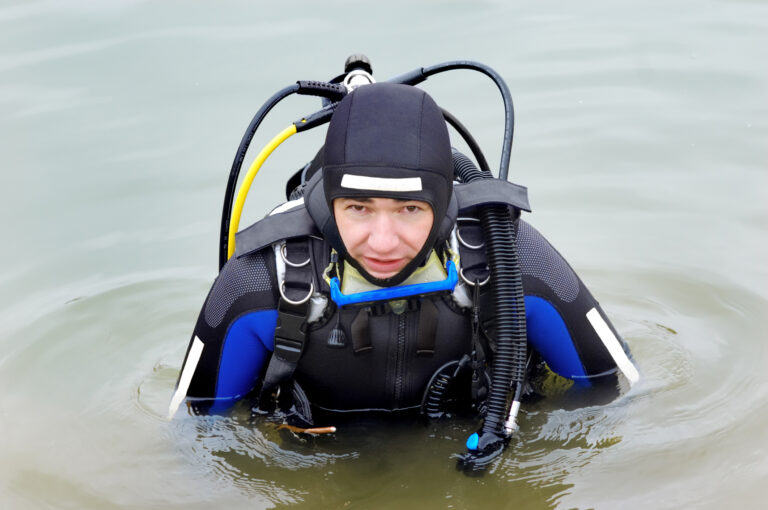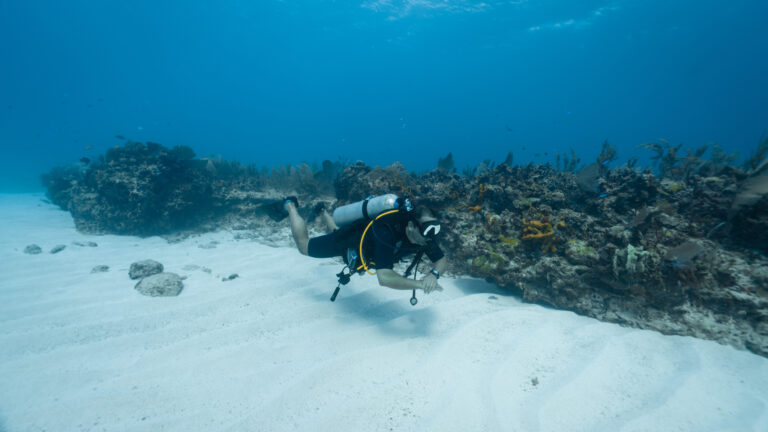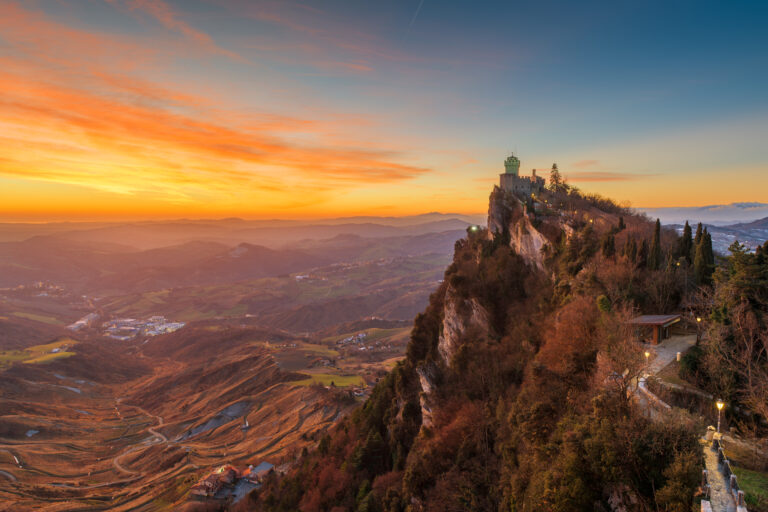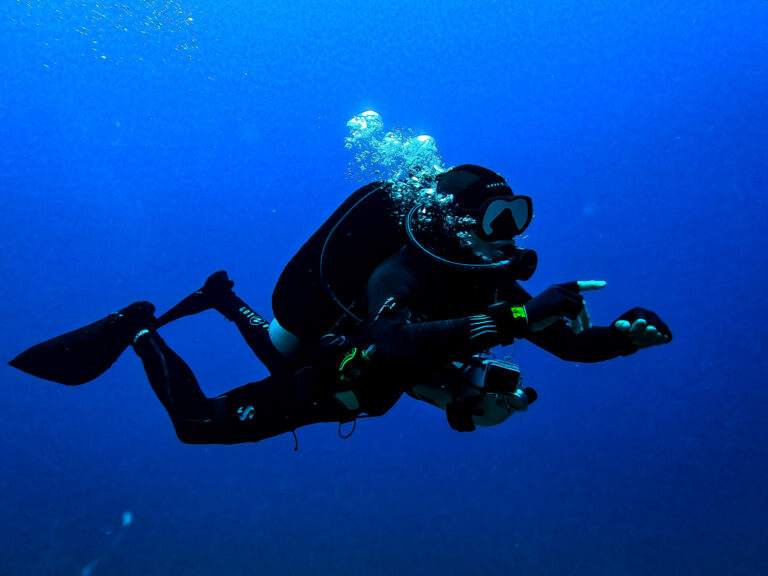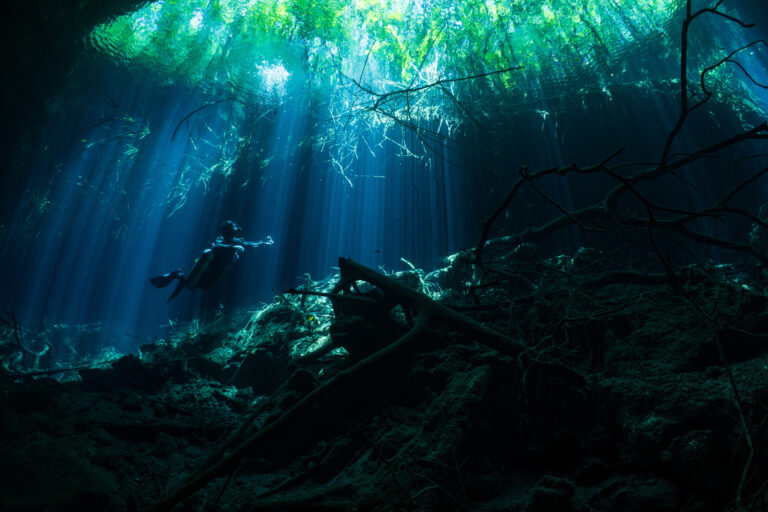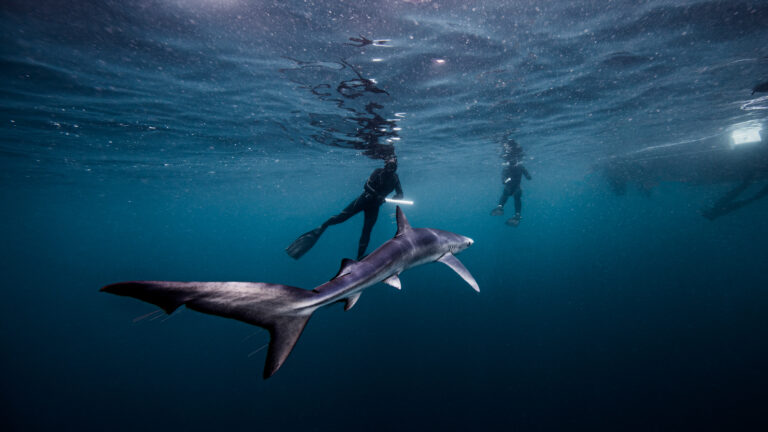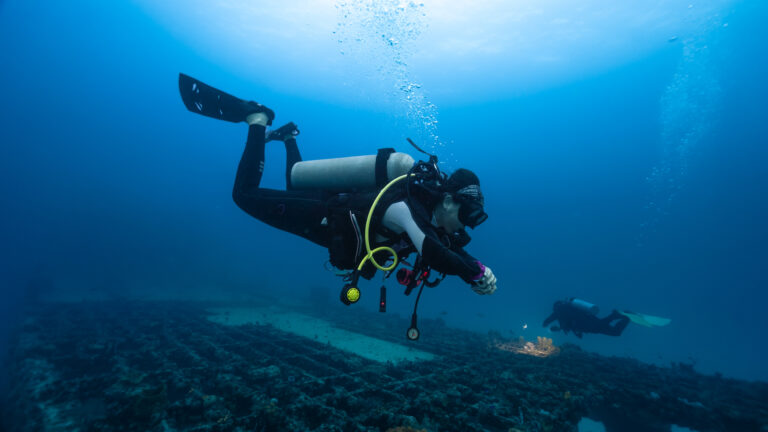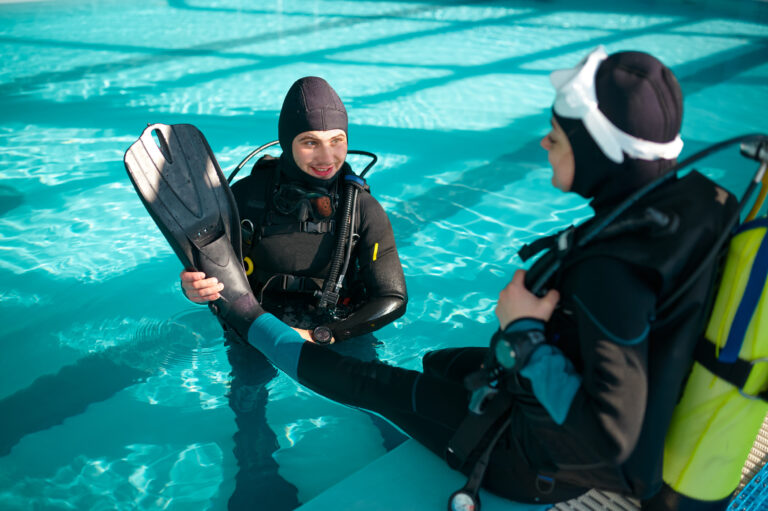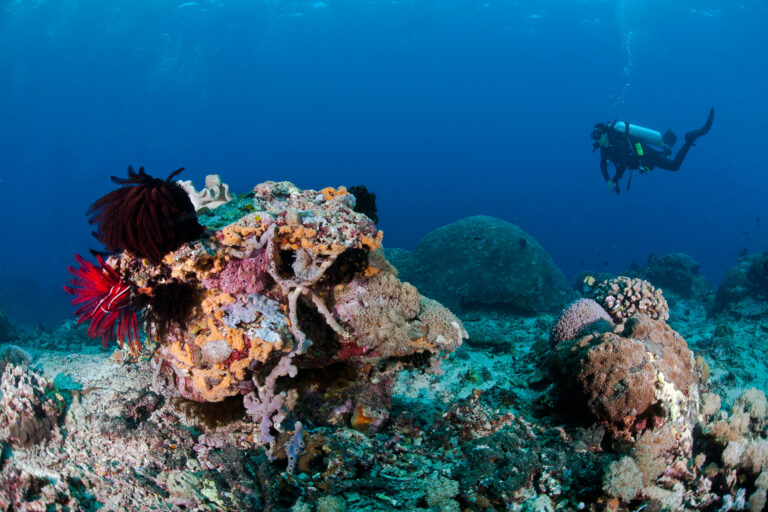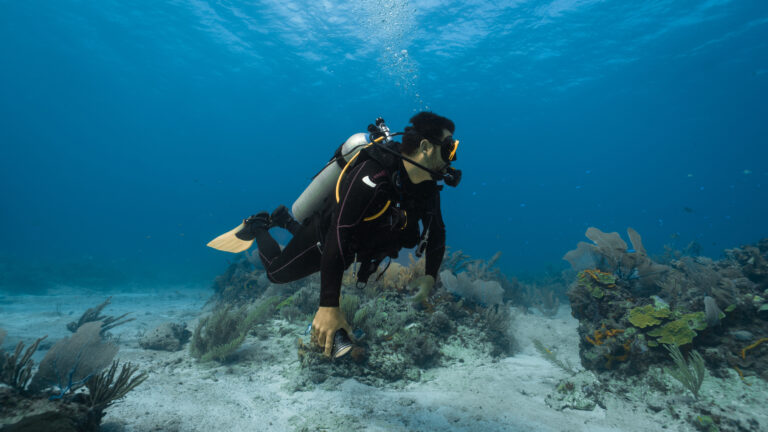SCUBA DIVERS’ TRAVEL GUIDE TO Luxembourg
Luxembourg may be a small landlocked country, but it has plenty of surprises for scuba divers who are looking for a unique and memorable experience. This beautiful nation boasts a mild, temperate climate and is home to many lakes, some of which are suitable for diving. One of the most popular dive sites is the Lac de la Haute Sûre, an artificial lake and freshwater reservoir that hides a submerged village of Liefrange. Here, you can explore the remains of houses, bridges, and roads that were flooded when the dam was built. You can also enjoy the scenic views of the surrounding hills and forests and encounter various fish species such as perch, pike, and carp. Diving in Luxembourg is a great way to discover the history and nature of this charming country. Whether you are a beginner or an advanced diver, you will find something to suit your taste and skill level. Don’t miss this opportunity to dive into a different world in the heart of Europe!
LOCATION AND GEOGRAPHY
Luxembourg, a small landlocked country in Western Europe, bordered by Belgium, France, and Germany, may not be the first destination that comes to mind for scuba diving enthusiasts due to its lack of coastline. However, what it lacks in oceanic expanses, it compensates for with its intriguing freshwater diving opportunities. The country’s geography is characterized by lush, rolling hills and deep valleys, with the Moselle River forming the eastern border. Divers can explore a few reservoirs and quarries that have been repurposed into dive sites. The most notable among these is the Lac de la Haute-Sûre, a large reservoir created by damming the Sûre River, which offers clear waters and an array of freshwater fish. While Luxembourg cannot provide the vibrant coral reefs of tropical destinations, its unique underwater landscapes and the chance to dive in the heart of Europe make it an interesting spot for divers looking for a different kind of underwater adventure.
VISA AND ENTRY REQUIREMENTS
Luxembourg, while landlocked and not a traditional scuba diving destination, may still intrigue adventurous divers looking to explore its freshwater diving opportunities, such as the flooded quarries that have been repurposed as dive sites. However, it’s important to note that Luxembourg is a member of the European Union and the Schengen Area. Travelers from other Schengen countries can enter Luxembourg without a visa and can stay for an unlimited period. Visitors from non-Schengen countries will need to check their visa requirements; many are allowed visa-free entry for stays of up to 90 days within a 180-day period for tourism purposes. Ensure your passport is valid for at least three months beyond your planned departure date from the Schengen area. Before planning your trip, always check the latest visa and entry requirements as policies can change, and some nationalities may require a visa regardless of the length of their stay.
GETTING TO Luxembourg
Luxembourg, a landlocked country nestled in the heart of Europe, may not be the first destination that comes to mind for scuba diving enthusiasts seeking marine adventures. However, getting to this small yet affluent nation for a unique diving experience is relatively straightforward. The country is well-connected by air, with Luxembourg Airport (LUX) serving as the main gateway for international travelers. Major airlines operate regular flights to Luxembourg from numerous European cities, and connecting flights from global destinations are readily available. For those exploring Europe by land, Luxembourg’s efficient rail network links it to neighboring countries such as France, Belgium, and Germany, making it an easy addition to a European travel itinerary. Once in Luxembourg, divers can explore the unexpected delights of freshwater diving in the country’s lakes and quarries, which offer clear waters and an array of submerged features.
BEST TIME TO DIVE
Luxembourg, being a landlocked country in Western Europe, does not offer traditional scuba diving experiences as one would find in oceanic or sea destinations. However, for enthusiasts looking to dive within its borders, the best time to indulge in the available freshwater diving is during the summer months, from June to August. During this period, the weather is warm and pleasant, and the visibility in lakes and quarries, such as the popular Lac de la Haute-Sûre or the Tëtelbierg Quarry, is at its peak. Water temperatures are more comfortable for diving, although a wetsuit is still recommended. It’s important to note that diving in Luxembourg is more about exploring submerged historical artifacts and enjoying the tranquility of freshwater environments rather than the vibrant marine life found in oceanic destinations. Always check local regulations and ensure access permissions where necessary, as some dive sites may have specific rules or seasonal restrictions.
ACCOMMODATION OPTIONS
Luxembourg, known for its landlocked grandeur and historical charm, may not be the quintessential scuba diving destination, but it does offer unique underwater experiences such as diving in lakes or flooded quarries. When it comes to accommodation options for scuba enthusiasts looking to explore these freshwater sites, the country provides a range of choices. From cozy bed and breakfasts in the picturesque countryside to luxurious hotels in the vibrant capital city of Luxembourg City, divers can find the perfect place to rest and relax after a day underwater. While there are no oceanfront resorts, many accommodations are conveniently located within a short drive from popular diving spots like the Lac de la Haute-Sûre or the Tëtelbierg Quarry. Some local dive shops may also offer stay-and-dive packages, including accommodations and guided dive tours, ensuring a hassle-free diving adventure in the heart of Europe.
DIVE OPERATORS AND DIVE SHOPS
Luxembourg, known for its landlocked grandeur and historical sites, may not be the first destination that comes to mind for scuba diving enthusiasts. However, this small European country offers a unique diving experience in its freshwater lakes and quarries. Dive operators and shops in Luxembourg are relatively few but provide personalized and high-quality service. They cater to a range of divers, from beginners to the experienced, offering PADI and CMAS courses, equipment rental, and guided dives. The most notable dive sites are in the Lultzhausen area, at the Upper Sûre Lake, and the Tëtelbierg Quarry in Rumelange. These dive shops ensure safety and environmental awareness are paramount, offering a chance to explore submerged villages, encounter freshwater life, and enjoy the visibility that comes with diving in inland waters. While Luxembourg may not offer tropical coral reefs, its dive operators and shops promise a distinctive and memorable diving adventure in the heart of Europe.
TRANSPORTATION WITHIN Luxembourg
Luxembourg, known for its picturesque landscapes and historical sites, may not be the first destination that comes to mind for scuba diving enthusiasts due to its landlocked location. However, for those looking to explore its hidden underwater treasures, such as the Tëtelbierg quarry, transportation within the country is efficient and convenient. The Grand Duchy boasts an excellent public transportation system, with buses and trains connecting major towns and regions. For divers, renting a car might be the most practical option, providing the flexibility to transport gear and access more secluded dive sites. Luxembourg’s compact size means that no destination is more than an hour’s drive away, allowing for easy exploration of both dive locations and the country’s rich cultural offerings. Remember to check in advance for any specific regulations or permits required for quarry dives, as these sites are not always readily accessible by public transport.
CURRENCY AND PAYMENT METHODS
Luxembourg, while landlocked and not a traditional scuba diving destination, does offer unique underwater experiences in its lakes and quarries for enthusiasts looking to explore freshwater environments. When visiting Luxembourg for scuba diving or any other purpose, it’s important to note that the country uses the Euro (€) as its official currency. Credit and debit cards are widely accepted in most establishments, including dive shops and centers, making it convenient for travelers to pay for services and equipment rentals. ATMs are readily available throughout the country for cash withdrawals. However, it’s advisable to carry some cash for smaller transactions, especially in remote areas where electronic payments might not be as prevalent. For the most up-to-date information on currency exchange rates and payment methods, it’s recommended to check with your bank or a financial institution before traveling.
LANGUAGE AND COMMUNICATION
Luxembourg, a landlocked country in the heart of Europe, may not be the first destination that comes to mind for scuba diving enthusiasts seeking marine adventures. However, for those interested in freshwater diving, the country offers unique experiences in its lakes and quarries, such as the popular Lultzhausen in the Upper Sûre Natural Park. When it comes to language and communication, divers will find that Luxembourg is a multilingual country where Luxembourgish, French, and German are all official languages. English is also widely spoken, especially within the diving community, making it easy for international divers to navigate and arrange dives. Dive briefings and courses are commonly available in English, ensuring that safety and enjoyment are not lost in translation. Whether conversing with local dive shops or engaging with fellow divers, the linguistic versatility of Luxembourg adds to the ease and charm of a diving trip in this European gem.
LOCAL CULTURE AND ATTRACTIONS
Luxembourg, landlocked and nestled between Germany, France, and Belgium, may not be the first destination that comes to mind for scuba diving enthusiasts seeking marine adventures. However, this small European nation offers a unique diving experience in its freshwater lakes and quarries, such as the Lac de la Haute-Sûre, which becomes a diver’s haven during the warmer months. Beyond the underwater realm, Luxembourg’s local culture and attractions are rich and diverse, reflecting its multilingual population and historical crossroads. Visitors can explore the UNESCO-listed fortress of Luxembourg City, wander through the charming old quarters, and indulge in the local cuisine, which blends German heartiness with French finesse. The Moselle Valley, famous for its wines, provides a picturesque backdrop for a post-dive excursion. Luxembourg’s numerous castles, like the Vianden Castle, offer a glimpse into the nation’s medieval past, while the contemporary art scene is celebrated in modern galleries and during the annual ‘Nuit des Musées’. Divers and their companions will find that Luxembourg’s cultural tapestry is as intriguing and inviting as its underwater landscapes.
CULTURAL ETIQUETTE AND TIPS
Luxembourg, while renowned for its landlocked grandeur and cultural richness, is not a traditional scuba diving destination due to its lack of a coastline. However, if you find yourself drawn to the idea of diving in Luxembourg, you might explore its rivers or lakes, such as the Upper Sûre Lake, where diving is possible. When engaging with the local diving community, it’s important to respect Luxembourg’s cultural etiquette. Punctuality is highly valued, so ensure you arrive on time for any arranged dives or meetings. Greetings are typically formal; a firm handshake is the norm. Luxembourg is a multilingual country where Luxembourgish, French, and German are widely spoken, so learning a few basic phrases in these languages can be greatly appreciated. It’s also important to respect environmental regulations and local customs regarding the use of natural resources, as Luxembourgers take great pride in their country’s cleanliness and conservation efforts. Always seek permission if diving on private property and be mindful of the tranquility and privacy valued by the locals.
LOCAL LAWS AND REGULATIONS RELEVANT TO TOURISTS
Luxembourg, being a landlocked country in Western Europe, does not offer traditional scuba diving experiences as one would find in coastal regions. However, it does have a number of lakes and rivers where diving activities can be pursued. Tourists interested in freshwater diving should be aware that local laws and regulations require divers to be certified by a recognized diving organization. Before diving in public water bodies, it is often necessary to obtain a permit from the local authorities or the managing entity of the specific water body. Additionally, certain areas may be protected for wildlife conservation and thus off-limits for diving. It is important to respect fishing zones and navigation routes, as well as to adhere to any seasonal restrictions that may be in place. Divers should also be mindful of the environmental regulations aimed at preserving the natural state of the waterways, which include prohibitions on the removal of artifacts and interference with aquatic life. As regulations can change, it is advisable to check with the local tourist information center or a diving club for the most current information before planning any diving activities in Luxembourg.
SAFETY TIPS AND EMERGENCY CONTACTS
Luxembourg, known for its landlocked grandeur, may not be the first destination that comes to mind for scuba diving, yet it offers unique freshwater diving experiences in quarries and lakes, such as Lake Haute-Sûre. When diving in Luxembourg, safety is paramount. Always check your equipment thoroughly and be aware of the local diving regulations and weather conditions, as these can vary greatly from ocean diving. It’s essential to dive within your certification limits and to never dive alone. Ensure you’re familiar with the use of dive tables and computers to manage your nitrogen absorption in these often colder waters. In case of an emergency, it is crucial to know the local protocols. Keep handy the contact information for the nearest hyperbaric chamber, which is the Centre Hospitalier de Luxembourg (CHL) in Luxembourg City, reachable at +352 44 11 11, and ensure you have appropriate insurance that covers diving emergencies. Always carry a means of communication and the contact details of local emergency services; in Luxembourg, the universal European emergency number is 112. Lastly, it is advisable to inform your dive operator or local contact of your dive plan before embarking on your underwater adventure.
HEALTH AND TRAVEL INSURANCE
While Luxembourg is a landlocked country and may not be the first destination that comes to mind for scuba diving, it does offer unique freshwater diving experiences in quarries such as La Roche Fontaine. However, it’s crucial for divers to ensure they have comprehensive health and travel insurance before embarking on their underwater adventure in Luxembourg. Given that diving is considered a higher-risk activity, standard travel insurance policies may not cover scuba-related incidents. Divers should look for specialized dive insurance that includes coverage for hyperbaric treatment, medical evacuation, and repatriation in case of a diving accident. Additionally, it’s important to verify that the policy covers diving to the depths you are certified for and includes any other specific activities you plan to undertake. Always carry proof of insurance with you and be familiar with the process for filing a claim, as prompt communication with your insurance provider is essential in the event of an emergency.

